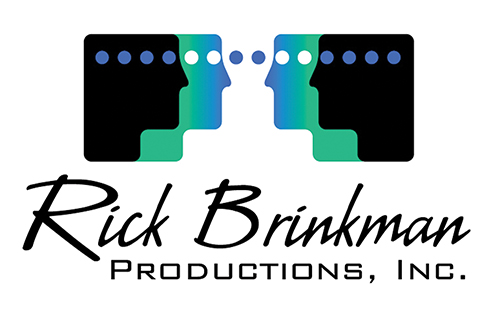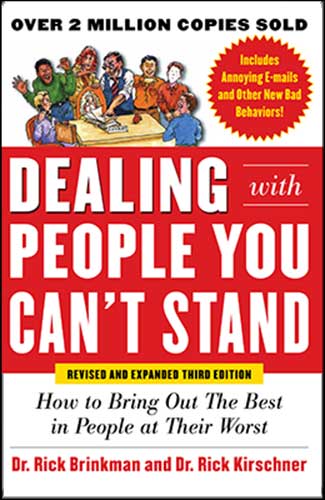Though we are associated with "Difficult People our book is not about personality types. We find it more effective to think in terms of behavior and what motivates it. Why when under stress does one person whine, another attack, another withdraw, while others go passive aggressive. There are four factors that influence where people go in our Lens of Understanding human behavior.
1. Organizational culture
2. Job function
3. The people around us
4. Personal programming
Organizational culture is the behaviors both good and bad, that are considered acceptable and forbidden.
When I presented seminars for IBM's leadership series and talked about the Grenade tantrum, consistently half the IBM’ers in the room would say “I can’t imagine somebody doing that at work.” While the other half of the room would say, “Oh yes they do!”
The difference was the half but couldn't imagine it were IBM’ers who were always at IBM. The half that said “Yes they do”, were IBM’ers who get sent to someone else's facility. They realized their corporate culture didn’t tolerate grenade tantrums. However, Tank (attack) and Know-it-all run free as protected species.
I performed some programs for Chevron and people told me they have a term called the “Chevron Yes”. What that means is you are pleasant and agreeable on the surface but that doesn't mean you really agree or will follow through.
A second factor is job function. I noticed professional nurses can easily get into whining because often they are on the front line knowing what needs to be done, but trumped by a Tank or Know-it-all doctor and limited by a hospital bureaucracy. The result of that equation is a feeling of being helpless. Helpless is the root of whining. (Hopeless the root of negativity.)
A third factor that influences behavior is the people around us. Whining, Negativity and Sniping are virulent and spread like the flu and before you know it everyone is doing it. Have you ever noticed how one department can have an ongoing sniping relationship with another department? The other difficult behaviors do not replicate, but they still cause problems. Put a Know-it-all on a team of people and watch everyone turn into Nothing people who won’t speak up or contribute at meetings.
Your relationship can also be a factor. If a colleague attacks you may stand up for yourself. If your boss attacks, you may be more passive.
And of course each of us individually comes wired with some tendencies to where we go in the lens when at work.
To prevent and move people into the “Cooperation Zone” of the lens requires:
1. Recognizing where people are behaviorally in the Lens of Understanding.
2. Recognizing the factors influencing behavior of job function, organizational culture and team members.
3. Knowing the strategy to transform their behavior. Communication is like a phone number. You need all digits and you need them in the correct order. There is a specific strategy to move people back into the Cooperation zone.
 A study found that by reacting to a person, rather than ignoring them, causes more stress and distraction that lasts far longer than the actual event.
I was honored to be a communication expert in this article at Woman's Health where the theme is "when to hold'em, when to fold 'em" or when do you do something about a behavior and when do you let it go. In this article I answer the age old questions of what to do if:
A study found that by reacting to a person, rather than ignoring them, causes more stress and distraction that lasts far longer than the actual event.
I was honored to be a communication expert in this article at Woman's Health where the theme is "when to hold'em, when to fold 'em" or when do you do something about a behavior and when do you let it go. In this article I answer the age old questions of what to do if:




 Time Magazine Business online quotes our book Dealing With People You Can't Stand, How to Bring Out the Best in People at Their Worst (Brinkman & Kirschner, 2012 McGraw-Hill) with advice on how to deal with tough behaviors in the business world.
Visit the
Time Magazine Business online quotes our book Dealing With People You Can't Stand, How to Bring Out the Best in People at Their Worst (Brinkman & Kirschner, 2012 McGraw-Hill) with advice on how to deal with tough behaviors in the business world.
Visit the 
 The Doctors Rick were in Blackstone Studios (Ashland, OR) this summer, recording the audiobook version of their international best selling book (20 languages), Dealing with People You Can't Stand, How to Bring Out the Best in People at Their Worst.
The Doctors Rick were in Blackstone Studios (Ashland, OR) this summer, recording the audiobook version of their international best selling book (20 languages), Dealing with People You Can't Stand, How to Bring Out the Best in People at Their Worst.




